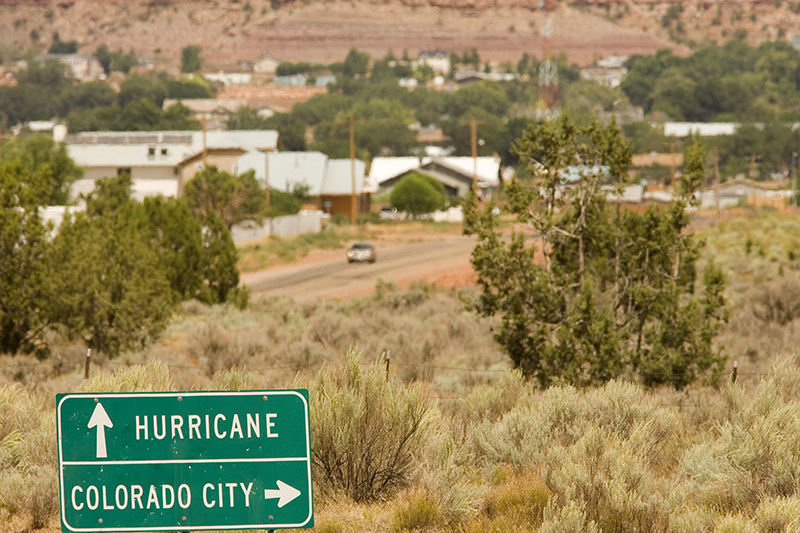
Jury selection began Tuesday in the civil-rights trial of two towns housing on a polygamous sect. Photograph taken in Colorado City, Ariz. Photo by Jack Kurtz/The Republic, courtesy of USA Today
PHOENIX — The case is supposed to be about religious discrimination: The question is, who’s discriminating against whom?
The U.S. Department of Justice claims that a polygamous sect called the Fundamentalist Church of Jesus Christ of Latter Day Saints controls the Arizona-Utah border towns of Colorado City and Hildale, and that it denies housing and police services to non-church members.
During opening arguments in U.S. District Court in Phoenix Wednesday, Justice Department attorney Jessica Clarke said that non-FLDS members in the two towns are denied “some of the most basic rights of democracy … freedom to live in a city governed by the laws of the land, not by the laws of religion.”
“The federal government wants to make this case about religion,” said attorney Jeffrey Matura, who represents Colorado City, Ariz.
“The federal government wants to eradicate this religion,” Matura said, to find the cities guilty of “the sins of the church.”
The two towns lie on a remote stretch of land called the Arizona Strip, isolated from the rest of Arizona by the Grand Canyon. Originally called Short Creek, it was settled in the early 20th century by fundamentalist Mormons who wanted, among other things, to continue to practice what they call “plural” marriage.
The church leader was traditionally called “The Prophet,” and in the early 2000s that title fell to Warren Jeffs, who, according to witness testimony, tightened control of the sect, excommunicated members and took away their homes and wives and children, and advocated underage marriage.
When Jeffs became a federal fugitive, according to court testimony and arguments, the marshal’s deputies, the towns’ combined police force, obstructed the investigation by not cooperating with other law enforcement.
At issue in opening arguments Wednesday was whether Colorado City and Hildale remain under FLDS control, and by extension, under the control of Warren Jeffs.
The U.S. government alleges that the two cities violate the Establishment Clause of the First Amendment — that is, refusing to separate church and state.
They are in violation of the Fair Housing Act and the Civil Rights Act because non-FLDS residents, the DOJ alleges, are denied housing through the cities’ practice of stalling or denying housing permits and water connections. And they are in violation of the Fourth Amendment ban on unreasonable search and seizure and the 14th Amendment requirement of equal protection under the law, the DOJ asserts.
Clarke said marshal’s deputies serve as enforcers in the housing disputes and collaborate with FLDS security staff to spy on townspeople and outsiders alike.Surveillance cameras all over town, Clarke said, are monitored in the church meeting house.
People the church does not like — an employee of the property trust fiduciary, for example — are harassed by townsfolk with no repercussions, Clarke argued.
But the defense attorneys told a different story.
“I do not represent Warren Jeffs or the FLDS church,” said attorney Blake Hamilton, who represents the town of Hildale, Utah.
“Who is discriminating against who?” he asked during his opening statement. He noted that the FLDS church is not named in the lawsuit.
Hamilton and his co-counsel, Matura, who represents Colorado City, claim that not all town employees or police are FLDS members and that those who are keep their religion separate from their job responsibilities.
The defense attorneys called out several of the government’s witnesses by name and broadcast their photos on closed-circuit TVs and called them liars.
The events that DOJ cites took place in the past, they claimed. The offending police were fired. And the housing problems are caused by the current fiduciary agent, they said.
The trial is expected to continue through the end of February.
(Michael Kiefer reported this story for The Arizona Republic)




